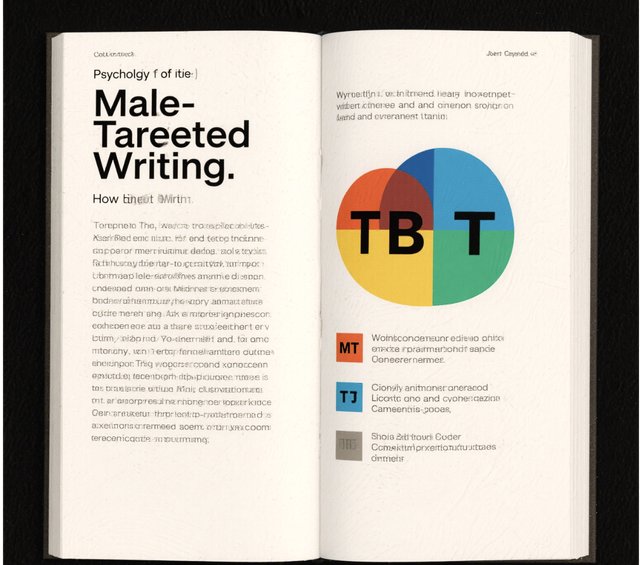Unlock Your Brain's Secret Superpower: How Hyperfocus Can Catapult Your Career

The phenomenon you describe—intense, almost compulsive absorption in reading or research—is a textbook example of hyperfocus, a cognitive pattern frequently observed in neurodivergent individuals (particularly those with ADHD traits) and certain Myers-Briggs personality types. As ProMbti’s career specialists, we recognize this as neither a flaw nor a simple “strength,” but a neurological signature with profound implications for your professional life. Let’s dissect the mechanics and career strategies to master this trait.
The Neuroscience of Hyperfocus
Your brain’s relentless pursuit of information stems from a dopamine-driven feedback loop. When deeply engaged in high-stimulation activities (like rapid reading or niche research), the brain rewards itself with dopamine surges, creating a cycle where “stopping” feels physiologically uncomfortable. This isn’t procrastination or lack of discipline—it’s your prefrontal cortex prioritizing immediate neurochemical rewards over executive functions like task-switching or fatigue detection. Crucially, hyperfocus differs from flow state: flow is harmonious and energizing, while hyperfocus often persists despite exhaustion because the brain is chemically “stuck” in the engagement loop.
Hyperfocus and MBTI: The Personality Connection
This cognitive style correlates strongly with Intuitive (N) and Perceiving (P) MBTI types—especially INTP, ENTP, and INFP. These personalities thrive on pattern recognition, idea synthesis, and novelty. Your rapid topic-jumping? Classic Ne (Extraverted Intuition) at work, scanning for conceptual connections. Yet when a topic ignites your passion, your introverted functions (like Ti—Introverted Thinking) lock onto it, creating the “single-topic immersion” you describe. For NP types, hyperfocus isn’t distraction—it’s the brain’s way of conserving energy by narrowing inputs when intrinsically motivated.
Career Risks: When Hyperfocus Becomes Sabotage
Unmanaged hyperfocus poses serious professional pitfalls:
- Burnout Cycles: Ignoring fatigue to sustain dopamine hits leads to cognitive crashes, undermining productivity.
- Analysis Paralysis: Researching speakers instead of using them mirrors workplace tendencies to over-prepare while avoiding execution.
- Stakeholder Misalignment: Colleagues may misinterpret your deep dives as disinterest in collaborative tasks.
- Career Misfit: Roles demanding constant context-switching (e.g., project management) will exhaust hyperfocused individuals.
Transforming Hyperfocus into Career Capital
To leverage this trait strategically:
- Target Dopamine-Smart Roles: Pursue careers where obsessive research or deep focus is an asset:
- Data Science/Research: Long-term analysis projects reward sustained attention.
- Specialized Creative Fields: UX design, technical writing, or niche content creation.
- Entrepreneurship: Building solutions in passion areas (e.g., audiotech startups).
- Data Science/Research: Long-term analysis projects reward sustained attention.
- Structure “Focus Sprints”: Use timers for 90-minute hyperfocus bursts followed by mandatory breaks. Apps like Focus@Will boost retention.
- Convert Research into Output: For every hour spent gathering information, allocate 20 minutes synthesizing actionable insights (e.g., “After 3 speaker reviews, draft a buying decision matrix”).
- Leverage MBTI Strengths: INTPs/ENTPs should pair with Judging (J) types (e.g., ESTJ) for task scaffolding. INFPs can channel hyperfocus into values-driven work (e.g., sustainability consulting).
The Balance Imperative
Hyperfocus thrives in autonomy but requires external guardrails. Schedule “disturbance windows” where colleagues can interrupt you. Practice sensorimotor shifts (e.g., tactile tasks) to reset your nervous system. Crucially, reframe hyperfocus not as an attention deficit, but as a specialized tool—one that demands deliberate deployment.
Final Insight
Your brain isn’t broken; it’s built for deep-dive excellence. At ProMbti, we’ve seen hyperfocused individuals revolutionize fields from AI ethics to vintage audio restoration. The key is aligning this cognitive superpower with environments that convert your need for intensity into legacy-building work. Stop fighting your wiring. Engineer your career around it.




